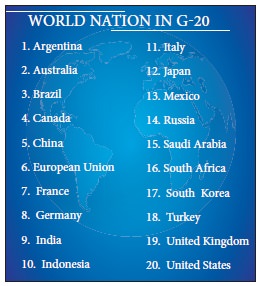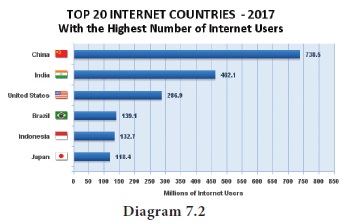Chapter: 11th Economics : Chapter 7 : Indian Economy
Strengths of Indian Economy
Strengths
of Indian Economy
1. India has a mixed economy
Indian
economy is a typical example of mixed economy. This means both private and
public sectors co-exist and function smoothly. On one side, some of the
fundamental and heavy industrial units are being operated under the public
sector,while, due to the liberalization of the economy, the private sector has
gained importance. This makes it a perfect model for public – private
partnership.
2. Agriculture plays the key role
Agriculture
being the maximum pursued occupation in India, it plays an important role in
its economy as well. Around 60% of the people in India depend upon agriculture
for their livelihood. In fact, about 17% of our GDP today is contributed by the
agricultural sector. Green revolution, ever green revolution and inventions in
bio technology have made agriculture self sufficient and also surplus
production. The export of agricultural products such as fruits, vegetables,
spices, vegetable oils, tobacco, animal skin, etc. also add to forex earining
through international trading.
3. An emerging market
India has
emerged as vibrant economy sustaining stable GDP growth rate even in the midst
of global downtrend. This has attracted significant foreign capital through FDI
and FII.India has a high potential for prospective growth. This also makes it
an emerging market for the world.
4. Emerging Economy
Emerging
as a top economic giant among the world economy, India bags the seventh
position in terms of nominal Gross
Domestic Product (GDP) and third in terms of Purchasing Power Parity (PPP). As a
result of rapid economic growth Indian economy
has a place among the G20 countries.

5. Fast Growing Economy
India’s
economy is well known for high and sustained growth. It has emerged as the
world’s fastest growing economy in the year 2016 -17 with the growth rate of
7.1% in GDP next to People’s Republic of China.
6. Fast growing Service Sector
The
service sector, contributes a lion’s share of the GDP in India. There has been
a high rise growth in the technical sectors like Information Technology, BPO
etc. These sectors have contributed to the growth of the economy. These
emerging service sectors have helped the country go global and helped in
spreading its branches around the world.

7. Large Domestic consumption
With the
faster growth rate in the economy the standard of living has improved a lot.
This in
turn has resulted in rapid increase in domestic consumption in the country. The
standard of living has considerably improved and life style has changed.
8. Rapid growth of Urban areas
Urbanization
is a key ingredient of the growth of any economy. There has been a rapid growth
of urban areas in India after independence. Improved connectivity in transport
and communication, education and health have speeded up the pace of
urbanization.
9. Stable macro economy
The
Indian economy has been projected and considered as one of the most stable
economies of the world. The current year’s Economic survey represents the
Indian economy to be a “heaven of macroeconomic stability,
resilience and optimism. According to the Economic Survey for the year
2014-15, 8%-plus GDP growth rate has been predicted, with actual growth turning
out to be a little less (7.6%). This is a clear indication of a stable
macroeconomic growth.
10. Demographic dividend
The human
capital of India is young. This means that India is a pride owner of the
maximum percentage of youth. The young population is not only motivated but
skilled and trained enough to maximize the growth. Thus human capital plays a
key role in maximizing the growth prospects in the country. Also, this has
invited foreign investments to the country and outsourcing opportunities too.

Related Topics